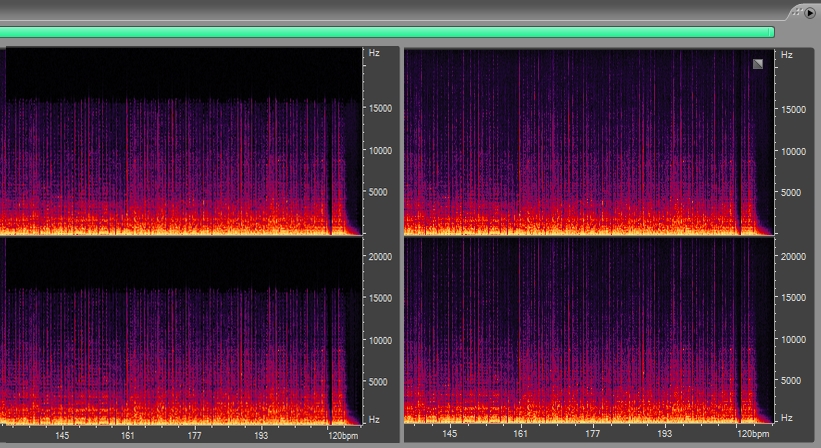Some users select the standard version, which is supplied on WMA files, and some opt for the more expensive Audiophile version, which is supplied as WAV files.
Is there a noticeable improvement in quality in the Audiophile version?
Presumably differences in quality must be detectable?
I'm interested to receive objective feedback from users, on both the perceived and demonstrated benefits (if any) between the two product versions.
I wonder would you share your views and observations?
Thanks
Trevor
Trevor,
I have both, and I do hear a noticeable improvement with the Audiophile versions. Particularly with acoustic guitar samples and cymbals; but the other instruments, like strings, are definitely clearer and more present with the “A” version.
To me, it is most noticeable when several instruments are combined. I can hear the compression inherent in the WMA files individually, but the effect is really apparent when comparing complete mixes. There is a compounding effect when combining the separate samples. This compression will become even more apparent when you apply mix or mastering compression – it can suck all of the dynamics out of your mix.
Also, a lot of the stuff I use BIAB for are cover songs, destined to be played through a PA. I can hear the difference between the two versions when played through a PA. (Not sure if that is germane to your situation, just thought I'd mention it).
Some folks say that you really can't hear a difference, but I know that I can. Hope this helps.
Regards,
Bob
Thanks Bob, your comments are appreciated. I wonder what percentage of users have the Audiophile version? Hopefully, some more will chime in.
This topic shows up regularly over the years, but it has only been discussed once in recent weeks if I recall correctly, and that was fairly brief.
I can hear a difference between the .WMA files used by the regular version of BIAB, and the .WAV files used by the audiophile version.
To hear a difference, I submit one must have all three of these things: pretty good ears, decent playback equipment, and a reasonably good listening environment.
Bob has mentioned good examples of some of the sounds where differences will be most noticeable. My list of those would feature acoustic guitar, acoustic piano, and cymbals.
I also agree with Bob's point that you begin to hear more of a difference when mixing several tracks. Noise in files is additive in a mix.
There are two historical points that may be relevant as well. In the early days of RealTracks, there was more of a difference until BIAB started using the Elastique algorithm for changing pitch and tempo. Also, using the uncompressed .WAV files made regeneration of a song a little faster. Who knows how much faster it was, but it was noticeable and I recall a guess of 10 to 20% being thrown around. It is for this reason that BIAB added the command to uncompress the .WMA files, even though it made no difference in the sound. If BIAB sees a .WAV file, it uses it; otherwise it must uncompress the .WMA file, and that does take a bit of time.
Having said these things, I must temper my comments by saying that any difference is small and subtle. I believe the regular version of BIAB will suffice for anyone who is not using BIAB to produce a commercial product. Indeed, we also know from the forum that some have great success using the regular (non-audiophile) version for commercial use.
Also keep in mind that updating the audiophile version will cost more each new version. You will usually have to wait a week or so for new patches of RealTracks to be released in audiophile form.
Hope that helps a little.
My ears are not that good, but I'm doing it for others that might have good ears, but I can see the difference.

Now there's a nice northern lighting on the subject .. Wavelab? My opining is the Audiophile version sounds definitely better, and indeed when mixing different sounds together from tracks to a stereo mix it seems less muddy IMO. But digitized acoustic instrument recordings to 16 bit will always sound less than the real thing, especially when stacked together. Make some room for the new pony ... Probably why equalizers are so popular, lets ruin "pure" sound some more. Use of a proper master clock improves digital recordings quite a bit; i was really surprised once doing live recordings with a classical orchestra, using an old 16 bit Akai Dr8 as backup recorder clocked externally. Both director and composer liked the Akai's registration better than the professional used equipment, playback on a very expensive set of mastering speakers and amp. So who's the fool that wants to be fooled, maybe me LOL. - F
